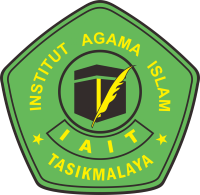Educational Media in Islamic Perspective
DOI:
https://doi.org/10.61166/responsive.v1i2.6Keywords:
Educational Media, Islamic Perspective, Islamic EducationAbstract
Learning is a complex process that involves a person physically and mentally throughout his life. The learning process occurs because of the interaction between a person and his environment. Therefore, learning can occur anytime and anywhere. One sign that a person is said to have experienced a learning process is a change in behavior in that person which includes changes in the level of knowledge, skills, and attitudes. The interactions that occur during the learning process are influenced by the environment, which includes students, teachers, librarians, principals, learning materials (books, modules, magazines, video or audio recordings, etc.) and various learning resources and facilities (overhead projectors, radio, television, computers, libraries, etc.). In the teaching and learning process, the presence of media has a fairly important meaning. Because in these activities, the ambiguity of the material presented can be helped by presenting media as an intermediary. Although the initial goal of learning is good, if it is not supported by the right media, this good goal is very difficult to achieve properly. A media in learning will affect whether information is complete and on target or not, and affect the final results of the learning process. However, even so, there are still many educational institutions that are less concerned with the existence of media. It is proven that there are many cases of educators who do not use media in accordance with the material being taught, so that in learning Islamic religious education, students have many difficulties in absorbing and understanding the lessons delivered, Educators have difficulty delivering lesson materials, many students feel bored with Islamic religious education lessons. This can be identified as a problem of lack of understanding of educators in the application of media in the learning process.
References
Budiningsih. Belajar Dan Pembelajaran. Jakarta: Rineka Cipta, 2012.
G. Muhammad, Q. Y. Zakiah, M. Erihadia. “Implementasi Pendidikan Karakter Religius Melalui Media Pembelajaran Berbasis Teknologi.” TA’DIBUNA: Jurnal Pendidikan Agama Islam 10, no. 4 (2021).
Hamalik, Oemar. Proses Belajar Mengajar. Jakarta: PT Bumi Aksara, 2020.
Jamun, Y. M. “Dampak Teknologi Terhadap Pendidikan.” Pendidik. Dan Kebud. Missio 10 (2018).
Nata, Abuddin. Perspektif Islam Tentang Strategi Pembelajaran. Jakarta: Kencana, 2009.
Ramayulis. Ilmu Pendidikan Islam. Jakarta: Kalam Mulia, 2006.
Salahudin, O. Teknologi Meningkatkan Atau Memenjarakan
Kreativitas Anak. Yogyakarta: Alineaku, 2021.
Sugiyono. Metode Penelitian Kuantitatif, Kualitatif, Dan R&D. Bandung: Alfabeta, 2021.
Tabroni, I. Model Pendidikan Islam: Teknik Mendidik Anak Dengan Treatment Di Era 4.0. Bandung: CV Cendekia Press, 2019.
Wina, Sanjaya. Strategi Pembelajaran Berorientasi Standar Proses Pendidikan. Jakarta: Kencana Prenada Media, 2006.











